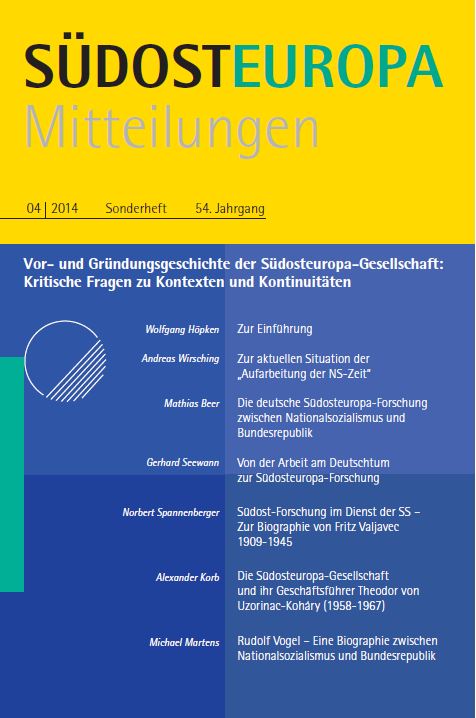Von der Arbeit am Deutschtum zur Südosteuropa-Forschung
Shifting the Focus from Dealing with Germanness to Southeast Europe Research
Author(s): Gerhard SeewannSubject(s): Anthropology
Published by: Südosteuropa Gesellschaft e.V.
Summary/Abstract: The paradigm of research on the German Volksboden and Kulturboden were both determing factors after 1918 when scientific work on German Volkstum and the German ethnic minorities in Eastern Europe intensified. The focus rested on verifying the German character of territories outside the borders of the German Reich drawn in 1919. In a second step the revision of these borders was to be legitimized historically and implemented politically. This mobilization ideology, which was based on expansion and aggression, also characterized the emerging body of research on Southeast Europe in the mid-1930s, with which the Third Reich sought to establish its hegemony in the region. Scientists such as Fritz Valjavec and Franz Ronneberger had a leading position in the SS-directed network of research institutions in Berlin, Munich, Vienna and Prague. Their research on regime opponents (Gegnerforschung) in the Southeast European countries aimed at the total control of populations in preparation of the moment to seize power and guarantee such control.
Journal: Südosteuropa Mitteilungen
- Issue Year: 2014
- Issue No: 04
- Page Range: 46-59
- Page Count: 14
- Language: Abkhazian
- Content File-PDF

